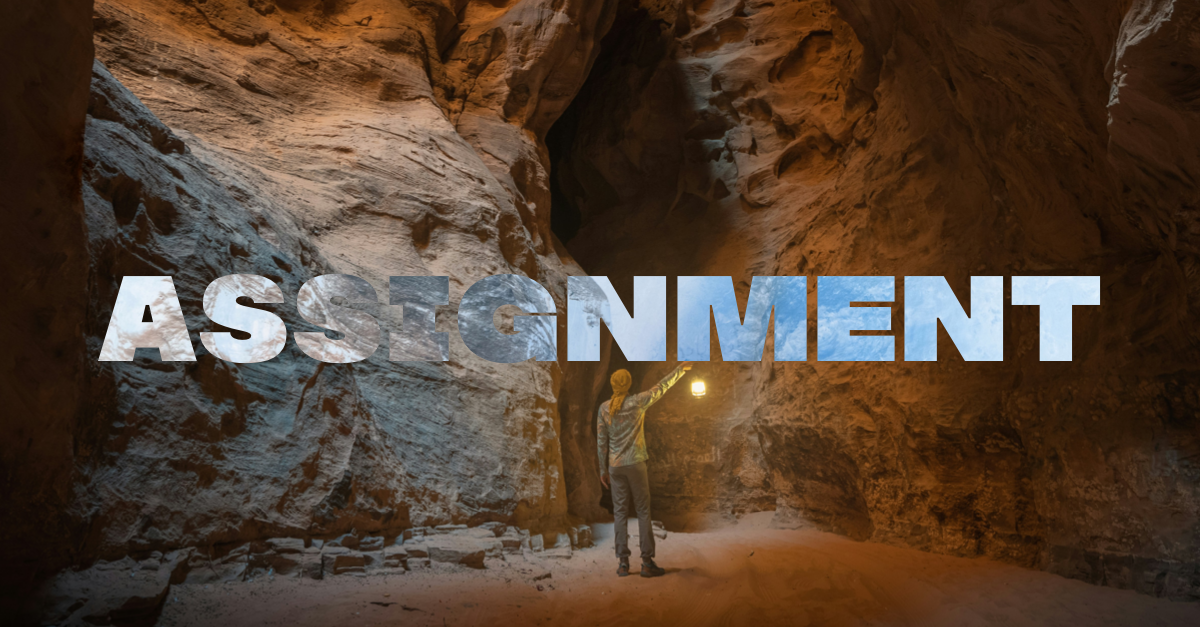Weekly Wednesdays: CALLED Men’s Group | Wednesday, March 26, 2025
Meeting #10 of 10 | This Week’s Leader: David Goodno
Introduction: Welcome everyone, this is the tenth and final meeting of the Winter 2025 semester, Men’s “Called” Growth Group. Please monitor https://fv.church/events for more information about the next semester and other upcoming events.
As we’ve said previously, everyone is welcome to attend; it doesn’t matter at what point you are in your faith journey– it doesn’t matter, 10 seconds, 10-years’ or a lifetime of walking with the Lord; everyone is welcome; everyone has value; everyone has a voice. We all come from various backgrounds, we have different points of view; we are at different places in our individual faith journey; the purpose of our meeting tonight is to come together, read the Bible, study God’s word and have a friendly discussion.
If there are differing points of view, we should not feel attacked or be hostile to one another. We came together tonight as friends and brothers in Christ; we should leave the same (as friends and brothers in Christ). Often times there is no right or wrong answer; just interpretation of scripture – ultimately, JESUS IS THE ANSWER.
We are continuing a SOAP(-Q) study (Scripture, Observation, Application, Prayer and Questions) of the book of Zechariah, who stressed the importance of maintaining a presence with the Lord and being obedient to Him.
Zechariah was concerned that exiles returning to Jerusalem, would repeat previous mistakes of the past and Zechariah’s message is helpful to us today to direct our thoughts and our actions to the Lord.
Last week we read chapters 11 and 12, and both were extremely challenging in the overall theme and message. There was imagery of good and evil shepherds, and future deliverance for Jerusalem. Tonight, we will finish the book of Zachariah and read chapters 13 and 14 – there will be more challenging imagery about purification, cleansing, scattering of sheep, and ends with the Lord ruling the Earth.
This Week’s Prayer: Father God, we thank you for allowing us to come together tonight and study your word. Lord, you sent Jesus to be my Good Shepherd, help us to follow you faithfully. Lord help us remain in you in all times - the good, the bad; in our success and in our failure. Lord you are ALWAYS with us; you remind us that you will never leave us or forsake us. We thank you; we praise you. In Jesus’ name. – Amen
Scripture, Read: Zechariah Chapters 13:1 – 14:21. (30 Verses)
Observation, Application & Questions: (Identify/Discuss Among the Group)
Key verses for discussion:
Zechariah 13:1-6,This second message focuses on cleansing of sin.
(13:1) - a fountain is a spring of pure, flowing water for cleansing and purification. (see John 4:14 and Revelation 22:1-2).
To cleanse them from all sins and impurity. Scholars believe that this cleansing, is symbolize in ritual washing of Old Testament worship (see Exodus 30:17-21 and Hebrews 10:1-22))
(13:2) - God’s cleansing of Israel will include the leaders and all the people of Judah and Israel. By cleansing Israel, God would erase former habits of Idol Worship and would give Israel a new heart to worship ONLY God. (See Jeremiah 31:33-34; 32:38-41)
(13:3) - You must die: Scholars note that according to God’s law a false prophet must be executed (Deuteronomy 13:5; 10; and 18:20). The Israelites had tolerated false prophets and killed the Lord’s true prophets. In the future, the roles would be reversed.
(13:4-6) - God’s total cleansing of his people from their impurities will strike such fear among the people that false prophets will deny or conceal their identity, even lying about the nature and purpose of their activities that might be associated with the prophets of idolatrous cults.
(13:5) - I am a farmer (This may be a parody of Amos 7:14)
(13:6) - wounds on your chest?: scholars believe that the cuts and bruises may be ritual cuts as some Canaanite religious circles sometimes gave themselves (see 1 Kings 18:28; Elijah on Mount Carmel).
(13:7-9) This message describes a coming day when God’s appointed shepherd of Israel would be struck down, and the sheep (that is the people of Israel) would be scattered.
This message of the scattering of the sheep, is the scattering of Jesus’ disciples as a result of the events surrounding his arrest, trial and execution (see Matthew 26:31, 56).
Two-thirds… one-third, believed to be the catastrophic divine judgement and small remnants preserved (Isaiah 65:9-12).
14:4-21 - Zechariah closes with visions of judgement, salvation and God’s universal kingdom. Israel would be restored as God’s people, and Jerusalem would be exalted as the center of civilization.
(14:1) - The day of the Lord will bring judgement and deliverance and reverse the fortunes of many (See Luke 13:23-30)
(14:2) - the rest is believed to be the remnant of Israel that survived the destruction of Jerusalem.
(14:4) - Jesus ascended into heaven from the Mount of Olives (Acts 1:11-12). Zechariah envisions an earthquake that will split apart the Mount of Olives.
(14:5) - Some scholars believe the identity Azal is a district on the northeast side of Jerusalem inhabited by descendants of Azel (1 Chronicles 8:37-39; 9:43-44).
(14:7) - Continuous day, the day of the Lord will bring fundamental changes to the created order (see Isaiah 60:19-22).
(14:8) - The life-giving waters symbolize God’s life-giving presence among his people.
(14:13) - The day of the Lord will bring terror to God’s enemies (Isaiah 22:5).
(14:20) - HOLY TO THE LORD – the priesthood was set apart for the Lord.
(14:21) - every cooking pot, this is believed to mean that everyday utensils will be turned into sacred vessels.
Other questions to explore:
What was the context? What was going on at the time this was written?
What and where is this happening?
What makes what was happening meaningful?
Is there anything special about the location (or locations)?
Who is involved?
How do they respond to God?
What character traits do you notice about them?
What is the significance of their involvement?
What do you think is the key message?
Did anything surprise you? What was it?
Were there any repetitive words or themes that stood out to you? What were they?
---
Is there anything that stood out to you? Share with the group and discuss.
Is there anything that left you with more questions? What were they? Share with group, discuss, and research.
Biggest takeaway?
Assignment:
Watch and know the Three Circles video be able to share the three circles at any time.
REMINDER: FV Church has multiple events planned in the future to help you and your family stay involved with the church and connected. Please monitor https://fv.church/events for more information.
o Next Semester: Beginning May 7 th – June 25 th , 2025 (subject to change), Topic: 1 & 2 Thessalonians.
References/Acknowledgements:
Elements of today’s Bible study were referenced from:
1. NLT Courage for Life Men’s Bible, New Living Translation (NLT); copyright 2023 Tyndale House Ministries
Holy Bible, New Living Translation, copyright 1996, 2004, 2015 by Tyndale House Foundation
https://www.tyndale.com/sites/courageforlifebible/
2. NIV Study Bible, Revolution, copyright 2011. The Holy Bible, New International Version (NIV); copyright 1973,
1978, 1984, 2011 by Zondervan, Grand Rapids, Michigan. https://www.zondervan.com/p/niv-bibles-for-teens true-images-revolution/
3. NKJV The Jeremiah Study Bible, New King James Version (NKJV); copyright 2013 David Jeremiah, Inc.
Holy Bible, New King James Version, copyright 1982 by Thomas Nelson, Inc.
https://www.thomasnelson.com/bibles
4. HCSB/CSB The Apologetics Study Bible, copyright 2007. The Holy Bible, Holman Christian Standard Bible
(HCSB/CSB); copyright 1999, 2000, 2002, 2003 by Holmon Bible Publishers, Nashville, Tennessee.
5. Knowing the Bible, Haggai, Zechariah, and Malachi, by Steven M. Coleman, J. L. Packer, Dane C. Ortlund;
copyright 2018 by Crossway, Wheaton, Illinois.
6. The Good Book Guide to Zechariah, God’s big plan for struggling Christians, by Tim Chester, copyright 2005 by the Good Book Company. https://www.thegoodbook.com
Schedule: Month, Meeting Number, Date, Book/Chapters/Verse/ (Total Verses)
January 2025:
_x_ 001, 01/22 Haggai 1:1 – 2:23. (38 Verses)
_x_ 002, 01/29 Zechariah 1:1-21. (21 Verses)
February 2025:
_x_ 003, 02/05 Zechariah 2:1 – 3:10. (23 Verses)
_x_ 004, 02/12 -- Canceled due to weather --
_x_ 005, 02/19 Zechariah 4:1 – 5:11. (25 Verses)
_x_ 006, 02/26 Zechariah 6:1 – 7:14. (29 Verses)
March 2025:
_x_ 007, 03/05 Zechariah 8:1- 23. (23 Verses)
_x_ 008, 03/12 Zechariah 9:1 – 10:12. (29 Verses) – updated.
_x_ 009, 03/19 Zechariah 11:1 – 12:14. (31 Verses) – updated.
_x_ 010, 03/26 Zechariah 13:1 – 14:21. (30 Verses) * - updated.
*Please monitor FV.church/events for more information about the next semester.








































